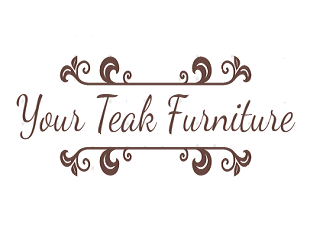The roof is essential to your home, as it protects from the elements while ensuring safety and comfort. It also offers benefits, such as enhanced curb appeal and increased energy efficiency. That said, selecting the right roofing material is vital.
Although a reputable roof supplier can help you choose the best choice for your home, learning about the different types is greatly beneficial. Read on to learn about the pros and cons of various roof types.
Asphalt Shingles
One of the most commonly used roofing is asphalt shingles. These are a combination of asphalt and fiberglass and are characterized by individual overlapping elements. These shingles come in different types, including three-tab and architectural or dimensional.
Pros: These roofs are inexpensive, making them ideal for those on a budget. Asphalt shingles are lightweight, offering easy installation, repair, and replacement. This benefit also makes installing them much faster.
Cons: Despite its durability, asphalt roofs are vulnerable to strong winds and temperature fluctuations, which could detach them and cause cracks. Unlike other materials, they usually last for only up to 30 years, depending on their surrounding environment.
Composite Shingles
This roofing type can be made from a combination of synthetic polymer, wood, slate, laminate, or other recycled materials. Composite shingles are typically used as a substitute for asphalt roofs.
Pros: Unlike traditional asphalt or other natural materials, composite shingles are resistant to rot, mold, and pests and can withstand extreme weather conditions, making them a long-lasting investment. This roof type is also low maintenance and comes in various styles and colors, offering design versatility.
Cons: Composite shingles may fade over time due to UV ray exposure, affecting curb appeal. They also have a higher price point, which could be a concern for those who want something more affordable.
Wooden Shakes or Shingles
If you want to add a rustic, homey charm to your property, wooden shakes or shingles are a great choice. They are usually made from cedar but can be formed from other wood types, such as pine or redwood.
Pros: This is another fairly affordable roofing option that gives your home a unique and natural feel. Wood shakes and shingles offer easy installation, are recyclable, and help enhance energy efficiency.
Cons: Wood roofs are not the sturdiest. Although they can be treated for further protection, their natural properties make them susceptible to moisture and vulnerable to fire, rot, and pests. Because of this, they also have higher maintenance requirements.
Metal Roofing
This roofing type can be made from steel, aluminum, and copper and comes in either panels, shakes, or shingles. While metal roofs are more commonly used in commercial settings, some have begun installing them in their homes.
Pros: Metal roofing offers superior durability, withstanding fire, water, and extreme weather conditions. Because of this, it has a longer lifespan, often lasting between 40 and 80 years. This roof type is also recyclable, making it an eco-friendly choice for those looking for sustainability.
Cons: Given their benefits, metal roofs come with a higher price tag, which could vary depending on the material used and desired style. Despite its strength, this material is still prone to dents and other physical damage caused by large hailstones or other heavy debris. It can also be quite noisy during rainstorms if not installed with the right coating.
Clay Tiles
This roof material is made from baked clay or terracotta molded into different shapes. Clay tile roofing usually comes in different hues and shades, with the reddish-orange color being a staple, creating a unique and attractive appearance.
Pros: Clay tile is one of the strongest roofing materials, often lasting between 50 to 100 years. It requires minimal maintenance and has excellent insulation properties, making it suitable for homes in warm, dry climates.
Cons: While sturdy, it is still relatively fragile and can break with impact. The high initial cost is also a significant drawback of this roof type, with its materials being expensive and installation being complex due to its added weight, requiring skilled labor.
Get Quality Roofing From a Reputable Roof Supplier
Choosing the right roofing material involves considering your budget, aesthetic preferences, maintenance requirements, and functionality. Each roof type has unique qualities, so learning about its pros and cons can help you make more informed decisions. Contact a roof supplier near you for more information about your options and discover which best fits your needs and preferences!

